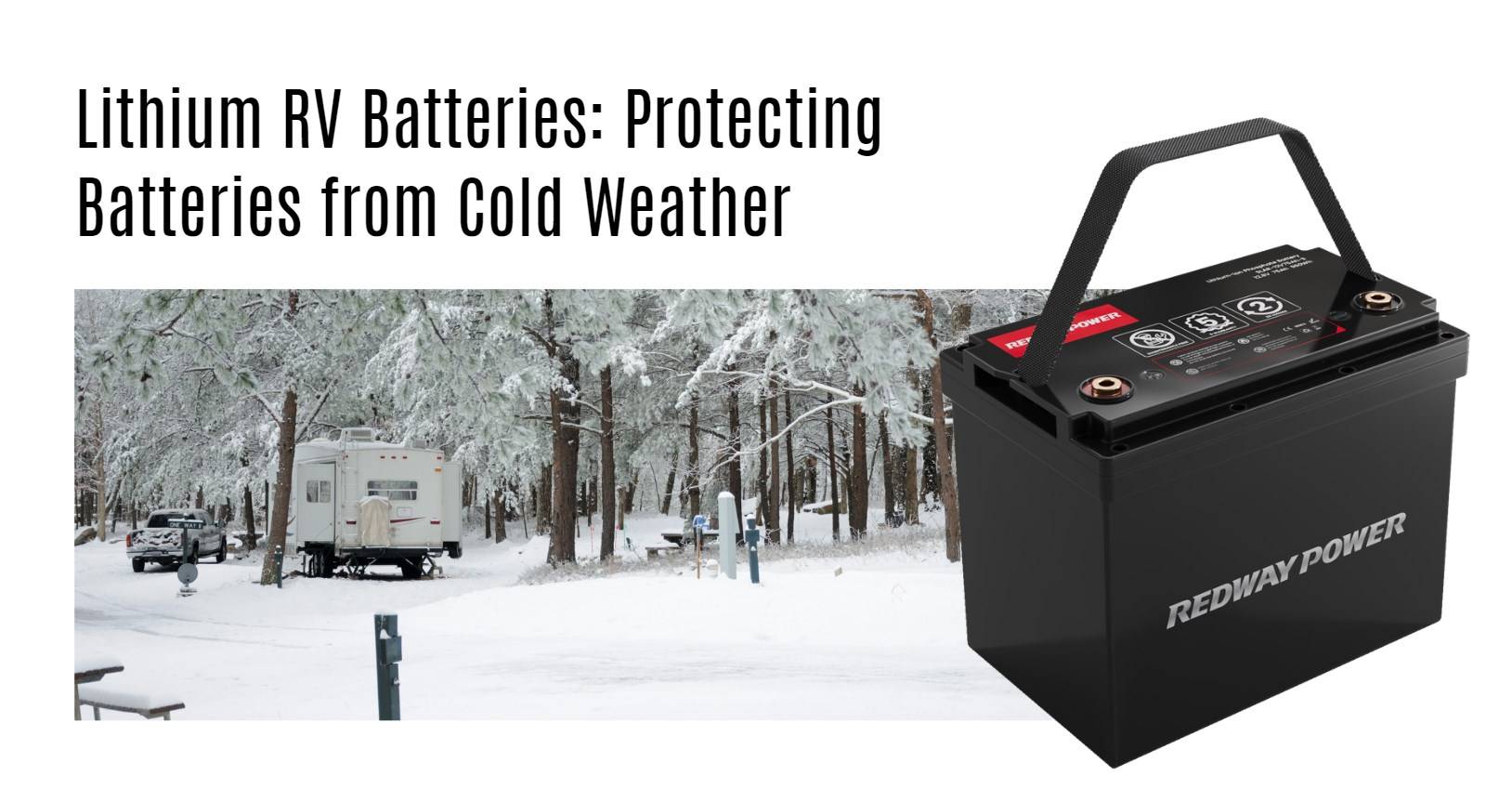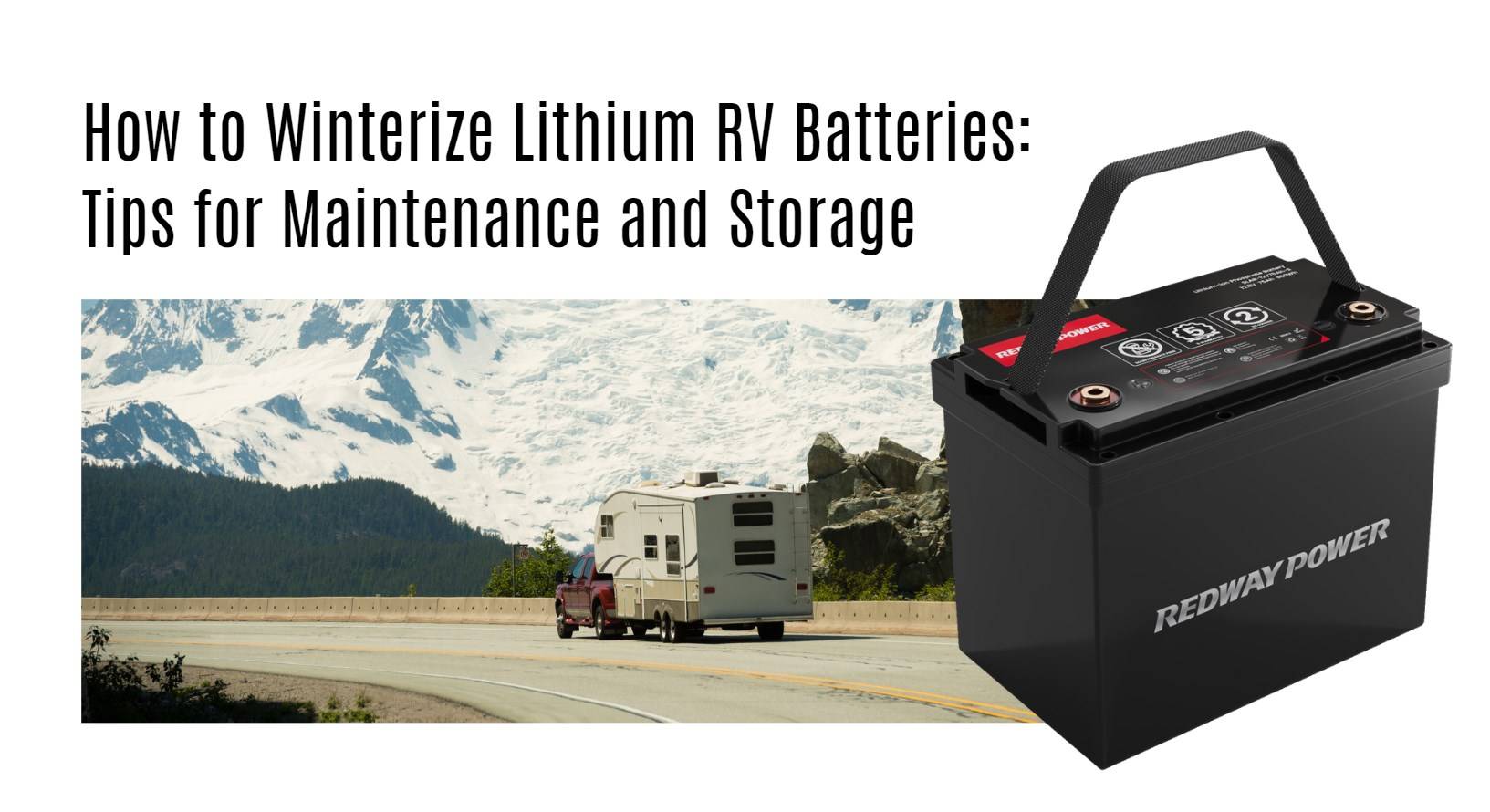Winterizing your lithium RV batteries is essential for maintaining their performance and longevity during cold months. Proper winterization helps prevent damage caused by freezing temperatures, ensuring that your batteries remain effective for both RVs and other applications.
What happens to RV batteries in cold weather?
In cold weather, lithium RV batteries can experience reduced capacity and efficiency. The electrolyte inside the battery becomes more viscous, leading to increased internal resistance. This results in diminished power delivery and may cause the battery to freeze if not properly managed. Lithium-ion batteries generally perform well down to about -4°F (-20°C), but charging them below freezing is not recommended.
| Temperature Range | Effect on Battery Performance |
|---|---|
| Above 32°F (0°C) | Optimal performance |
| 0°F to 32°F | Reduced capacity; operational but less efficient |
| Below 0°F | Increased risk of damage if charged |
How can you prepare your RV battery for winter?
Preparing your lithium RV battery for winter involves several key steps:
- Fully Charge the Battery: Ensure your battery is fully charged before storage; this helps prevent freezing.
- Check Electrolyte Levels: For flooded lead-acid types, ensure electrolyte levels are adequate.
- Disconnect: Remove the battery from the RV and disconnect all terminals to prevent parasitic drain.
What are the best practices for storing RV batteries?
When storing your RV batteries over winter:
- Store Indoors: Keep the battery in a warm, dry location away from direct sunlight.
- Use Insulation: Consider insulating the storage area or using thermal blankets.
- Regular Maintenance: Check voltage levels monthly and recharge if below 75% capacity.
How can you keep your RV batteries charged during winter?
To maintain charge during winter:
- Use a Battery Maintainer: Connect a smart charger or maintainer that monitors voltage levels and prevents overcharging.
- Periodic Charging: If stored outside, consider charging every few weeks to keep the battery healthy.
What insulation methods can be used for RV batteries?
To insulate your RV battery effectively:
- Battery Blankets: Use thermal blankets designed specifically for batteries.
- Insulated Boxes: Build or purchase insulated boxes that fit around the battery, providing protection from cold air.
- Foam Insulation: Apply foam insulation around the battery compartment to minimize exposure to cold.
| Insulation Method | Description |
|---|---|
| Battery Blankets | Thermal wraps that provide warmth |
| Insulated Boxes | Custom containers that trap heat |
| Foam Insulation | Material applied around compartments |
How can battery heaters help during cold weather?
Battery heaters are devices that provide consistent warmth to maintain optimal operating temperatures:
- Heating Pads: These pads wrap around the battery and provide gentle heat.
- Heated Battery Boxes: Enclosed systems that maintain a stable temperature using electrical heating elements.
What steps should be taken to maintain battery health in winter?
To ensure your lithium or lead-acid batteries remain healthy:
- Regular Monitoring: Check voltage levels regularly and recharge as needed.
- Avoid Full Discharge: Do not let the battery discharge completely; aim to keep it above 50%.
- Use Appropriate Chargers: Always use chargers designed for your specific type of battery.
FAQ Section
- Can I leave my RV’s lithium battery outside during winter?
It’s not recommended; extreme cold can reduce performance and potentially damage the battery. - What should I do if my lithium battery freezes?
If a lithium battery freezes, do not attempt to charge it until it has warmed up above freezing temperatures. - How often should I check my stored lithium battery?
Check your stored battery every month or so to ensure it maintains a healthy voltage level.

Ideal Charging Practices
During winter storage, it’s beneficial to maintain a constant charge on your RV batteries. Most battery manufacturers recommend storing batteries at a consistent temperature around 70 degrees Fahrenheit for optimal performance. If indoor storage isn’t possible, use battery warmers or RV battery tenders to keep them at a stable temperature. This practice ensures that your batteries remain fully charged and ready for use when spring arrives.
Conclusion
In conclusion, proactive maintenance of your RV batteries during winter is essential for ensuring reliable performance and longevity. By following these comprehensive guidelines from [Our Company Name], you can safeguard your investment and enjoy worry-free travels in all seasons. For further assistance or to explore our range of RV battery care products, contact us today.



